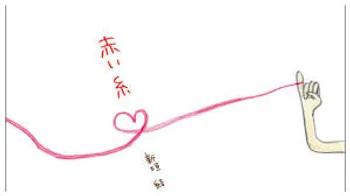Some feelings can’t be neatly translated into other languages. They’re woven into the way a people live, love, and remember. One of these feelings is Inyeon (인연) — a Korean word that carries the quiet power of unseen strings pulling us together.
But as I’ve come to understand it, Inyeon isn’t only a Korean thing. It’s a human thing.
The Invisible Threads That Tie Us
Inyeon goes beyond the idea of fate or coincidence. It’s about the spiritual and emotional threads that connect us — across lifetimes, across space and time.
Every encounter, no matter how brief or seemingly insignificant, is meaningful. There’s a Korean saying that even brushing against someone’s sleeve is a sign of Inyeon.
Have you ever met someone and felt like you’ve known them forever? Or had a chance meeting that changed your life? That’s Inyeon. And while it’s deeply rooted in Korean Buddhist and shamanic traditions, its message speaks to something we all understand:
We’re all connected in ways we can’t always see.
A Red String, A Grandmother Spirit, and Love That Lasts Lifetimes

There’s a beautiful story in Korea that destiny takes the form of a grandmother spirit. She ties a red string around the fingers of newborns and carefully weaves it through life — looping, tugging, sometimes tangling — until it reaches the finger of someone they are meant to meet. A friend. A mentor. A life partner.
But to see the red string for what it is, we must stay aware. We must treat every encounter — no matter how fleeting — with care and respect.
In Inyeon, every person who enters your life might be part of something greater than you realize.
Jeong: When Connection Deepens into Emotion
If Inyeon is the thread that ties us together, Jeong (정) is the warmth that grows from it. Jeong is more than emotion — it’s affection, loyalty, and a deep-rooted bond that forms slowly, often through shared struggles and quiet care.
Psychologist Choi Sang-chin describes four things that build Jeong: a shared past, time spent together, tenderness, and intimacy. You’ll recognize this in the people you’ve cried with, grown with, or simply sat beside in silence when words weren’t enough.
In Korean culture, Jeong is “uri” — we, not I. It’s the idea that we aren’t just individuals — we’re threads in the same fabric, holding one another through storms and sunshine alike.
Inyeon Across Beliefs and Borders
You don’t have to be Korean to feel Inyeon. You just have to be human.
In many cultures, we see echoes of this idea. In Hinduism, the karmic ties that bind souls. In African traditions, the ancestors who guide the living. In Western folklore, the concept of soulmates or “meant to be.”
In Korean shamanism, Inyeon explains the good and bad fortunes that ripple into our lives — through the influence of spirits, past choices, and old relationships. It reminds us that our lives are shaped not just by what we do, but by who we meet and how we meet them.
Why Inyeon Matters — Now More Than Ever
In a world that moves fast and often feels fragmented, the message of Inyeon is a gentle reminder to slow down. To see people. To treat every interaction as sacred — whether it’s with a lifelong friend, a stranger at the bus stop, or a colleague you barely know.
Because who knows? Maybe that brief conversation, that act of kindness, that shared silence — maybe it’s part of a deeper story. One that stretches far beyond today.
Inyeon teaches us that we are not accidents, and neither are our relationships. We are threads — tangled, tied, and beautifully connected — in the grand tapestry of human experience. Wherever you're from, whatever your story, maybe Inyeon is whispering to you, too.
After all, that’s just the way it should be. 원래 그런가야.
Originally published in https://www.thekoreandiaspora.com/post/discovering-the-meaning-of-인연-inyeon-exploring-the-depth-of-korean-human-spiritual-connections






Love your article! I'm familiar with Buddhism, but this is the first time I have heard about Inyeon and Jeong. They are concepts desperately needed these days, when everyone is racing through their lives. Substack is actually a good embodiment of your topic—a way to hear, see, and pay attention to others out of our immediate circle of friends and family. Modern scientists and sages through the ages agree that acting unconditionally and taking every person and action as worthy in itself is the way to go, instead of viewing everything as a transaction. Thanks for introducing these concepts.